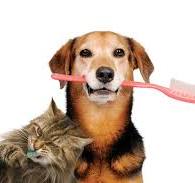The Importance of Dog Dental Care
Just like humans, dogs require regular dental care to maintain their overall health and well-being. Proper dental hygiene is essential for your furry friend’s longevity and quality of life.
Common Dental Issues in Dogs
Poor dental hygiene can lead to a variety of dental issues in dogs, including:
- Plaque and Tartar Build-Up: Accumulation of plaque and tartar can result in bad breath, gum disease, and tooth decay.
- Gingivitis: Inflammation of the gums can cause pain and discomfort for your dog.
- Tooth Loss: Untreated dental problems can lead to tooth loss, affecting your dog’s ability to eat properly.
- Periodontal Disease: Advanced gum disease can impact not only your dog’s oral health but also their overall health, potentially leading to heart and kidney issues.
Benefits of Good Dental Care
Regular dental care for your dog can provide the following benefits:
- Fresh Breath: Proper oral hygiene helps prevent bad breath in dogs.
- Healthy Gums: Regular brushing and dental check-ups promote healthy gums and prevent gum disease.
- Pain Prevention: By addressing dental issues early, you can prevent your dog from experiencing pain and discomfort.
- Overall Health: Good oral health is linked to better overall health in dogs, reducing the risk of systemic diseases.
Dental Care Tips for Dogs
To maintain your dog’s oral health, consider the following tips:
- Regular Brushing: Brush your dog’s teeth regularly with a pet-safe toothbrush and toothpaste.
- Dental Chews and Toys: Provide chew toys or treats designed to promote dental health by reducing plaque and tartar build-up.
- Veterinary Check-Ups: Schedule regular dental check-ups with your veterinarian to monitor your dog’s oral health.
8 Essential Tips for Maintaining Your Dog’s Dental Health
- Brush your dog’s teeth regularly with dog-specific toothpaste.
- Provide dental chews or toys to help clean your dog’s teeth.
- Feed your dog a balanced diet to support dental health.
- Schedule regular dental check-ups with your veterinarian.
- Avoid giving your dog human food that can be harmful to their teeth.
- Monitor your dog’s breath for any unusual odors that may indicate dental issues.
- Be observant of any changes in your dog’s eating habits, which could signal dental problems.
- Start good oral hygiene habits when your dog is young to prevent future dental issues.
Brush your dog’s teeth regularly with dog-specific toothpaste.
Ensuring proper dental care for your dog is crucial for their overall health. One effective way to maintain your dog’s oral hygiene is by brushing their teeth regularly with toothpaste specifically formulated for dogs. Dog-specific toothpaste comes in flavors that appeal to dogs and is safe for them to swallow. By incorporating this simple yet essential practice into your pet care routine, you can help prevent plaque and tartar build-up, reduce the risk of gum disease, and promote fresh breath for your furry companion. Regular brushing with dog-specific toothpaste not only supports your dog’s dental health but also contributes to their overall well-being.
Provide dental chews or toys to help clean your dog’s teeth.
Providing dental chews or toys specifically designed to promote oral health can be a beneficial addition to your dog’s dental care routine. These specialized chews and toys help clean your dog’s teeth by reducing plaque and tartar build-up, which can contribute to better overall oral hygiene. Not only do these items help keep your dog’s teeth clean, but they also provide mental stimulation and can serve as a fun and rewarding activity for your furry friend. Incorporating dental chews or toys into your dog’s daily routine can contribute to their dental health and well-being in the long run.
Feed your dog a balanced diet to support dental health.
Feeding your dog a balanced diet is crucial for supporting their dental health. A nutritionally balanced diet not only benefits your dog’s overall well-being but also plays a significant role in maintaining strong teeth and healthy gums. By providing your dog with the right nutrients, you can help prevent dental issues such as plaque build-up and gum disease. Incorporating quality food that promotes dental health can contribute to keeping your dog’s teeth clean and their mouth fresh, ensuring a happy and healthy smile for your furry companion.
Schedule regular dental check-ups with your veterinarian.
It is crucial to schedule regular dental check-ups with your veterinarian to ensure your dog’s oral health is in optimal condition. Veterinarians have the expertise to identify any potential dental issues early on and provide appropriate treatment. Regular check-ups also allow for professional cleanings that can help prevent more serious dental problems down the line. By prioritizing these check-ups, you are taking proactive steps to maintain your dog’s overall well-being and prevent any discomfort or pain associated with untreated dental issues.
Avoid giving your dog human food that can be harmful to their teeth.
It is important to avoid giving your dog human food that can be harmful to their teeth. Certain foods that we consume, such as sugary snacks, hard candies, or foods high in fat, can contribute to dental issues in dogs. These items can lead to plaque build-up, tooth decay, and other oral health problems for your furry companion. Opting for dog-friendly dental treats and maintaining a balanced diet tailored to your dog’s nutritional needs can help promote better oral hygiene and overall health for your pet.
Monitor your dog’s breath for any unusual odors that may indicate dental issues.
Monitoring your dog’s breath for any unusual odors is a crucial tip in maintaining their dental health. Foul or persistent bad breath can be a sign of underlying dental issues such as plaque buildup, gum disease, or tooth decay. By paying attention to your dog’s breath and seeking veterinary care if you notice any unusual odors, you can address potential dental problems early and ensure your furry companion’s oral health is well taken care of.
Be observant of any changes in your dog’s eating habits, which could signal dental problems.
Being observant of any changes in your dog’s eating habits is crucial when it comes to maintaining their dental health. If you notice your furry friend having difficulty eating, chewing on one side of their mouth, or showing reluctance to eat hard food, it could indicate underlying dental issues. Monitoring your dog’s eating behavior can help you detect potential problems early and seek timely veterinary care to address any dental issues that may be causing discomfort or pain.
Start good oral hygiene habits when your dog is young to prevent future dental issues.
Starting good oral hygiene habits when your dog is young is crucial for preventing future dental issues. Introducing regular teeth brushing and dental care practices early on can help your dog become accustomed to these routines, making it easier to maintain their oral health as they grow older. By establishing good habits from a young age, you can significantly reduce the risk of dental problems such as plaque build-up, gum disease, and tooth decay in your furry companion, ensuring they enjoy a lifetime of healthy smiles.
Tags: benefitsbrushing teeth regularly dental chews and toys dental issues dog dental dog dental care fresh breath gingivitis healthy gums hygiene importance overall health pain prevention periodontal disease plaque tartar tips tooth loss veterinary check-upsCategory: Uncategorized



